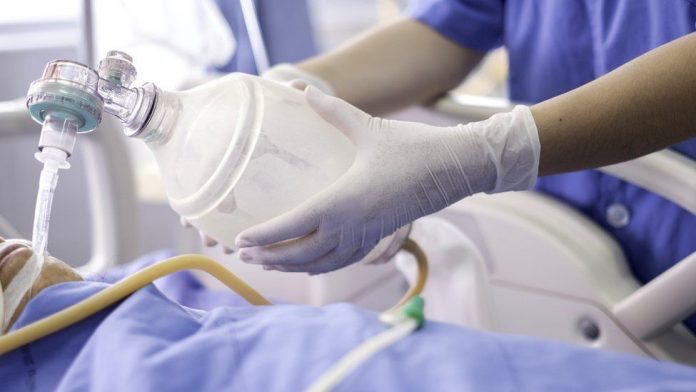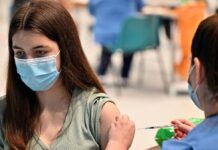NHS bosses have sounded the alarm over the number of people on ventilators in hospital in the UK, which has risen over the past week.
The deputy chief executive of NHS Providers, Saffron Cordery, said the number of Covid patients in hospital on ventilation beds had increased by 41% in the last week to 227, which she said was a strong indication Covid was having an impact on health services.
Cordery told BBC Breakfast: “Trusts on the frontline are really coming under huge pressure … they have plans in place to tackle the backlog, but with more Covid cases and demand for emergency care going up, that’s really challenging.”
Cordery said NHS leaders were already worrying about the potential for a Covid surge to collide with other winter illnesses such as flu and respiratory viruses later in the year, posing “a significant challenge” to the health system.
She added: “I think we need to look at this sudden rise in the demand for emergency care as well, so you know we are seeing record levels of demand for that kind of care.”
Numbers remain far below the peak of 4,077 on 24 January and are closer to levels seen at the end of April. The latest available data showed the number of patients in hospital at 1,378, similar to early May, while the daily tally of new cases was 11,625, last seen in mid-February.
However, official data published by the Office for National Statistics on Tuesday showed the number of deaths from flu and pneumonia was now 10 times higher than Covid.
Speaking on BBC Radio 4’s Today programme, Prof Neil Ferguson, an epidemiologist at Imperial College London, said this and other surveillance data were “encouraging”, despite rising case numbers. Lower hospitalisations and death rates relative to case numbers prove the high effectiveness of vaccines in protecting people from serious illness, he said.
“It’s clear now that having two doses of either AstraZeneca, Moderna or Pfizer gives high level of protection against severe disease. People still get infected but at a much lower level, they probably get 80-90% protection against infection alone, and even those people who do get infected after two doses are almost certainly probably 50% less infectious, so the combined effect of that is quite dramatic at reducing risk,” he said.
He added that infection rates – especially for the Delta variant – were concentrated in unvaccinated groups, including school-age children. “Unfortunately that picture will continue for a few weeks more until we get past the third wave, which will unfold in the next couple of months,” he said.
Health services will need to be prepared for “potentially quite a significant flu epidemic” later this year because social distancing measures across the world last year drove it down to unusually low levels. This could be countered with seasonal flu shots, he said.







